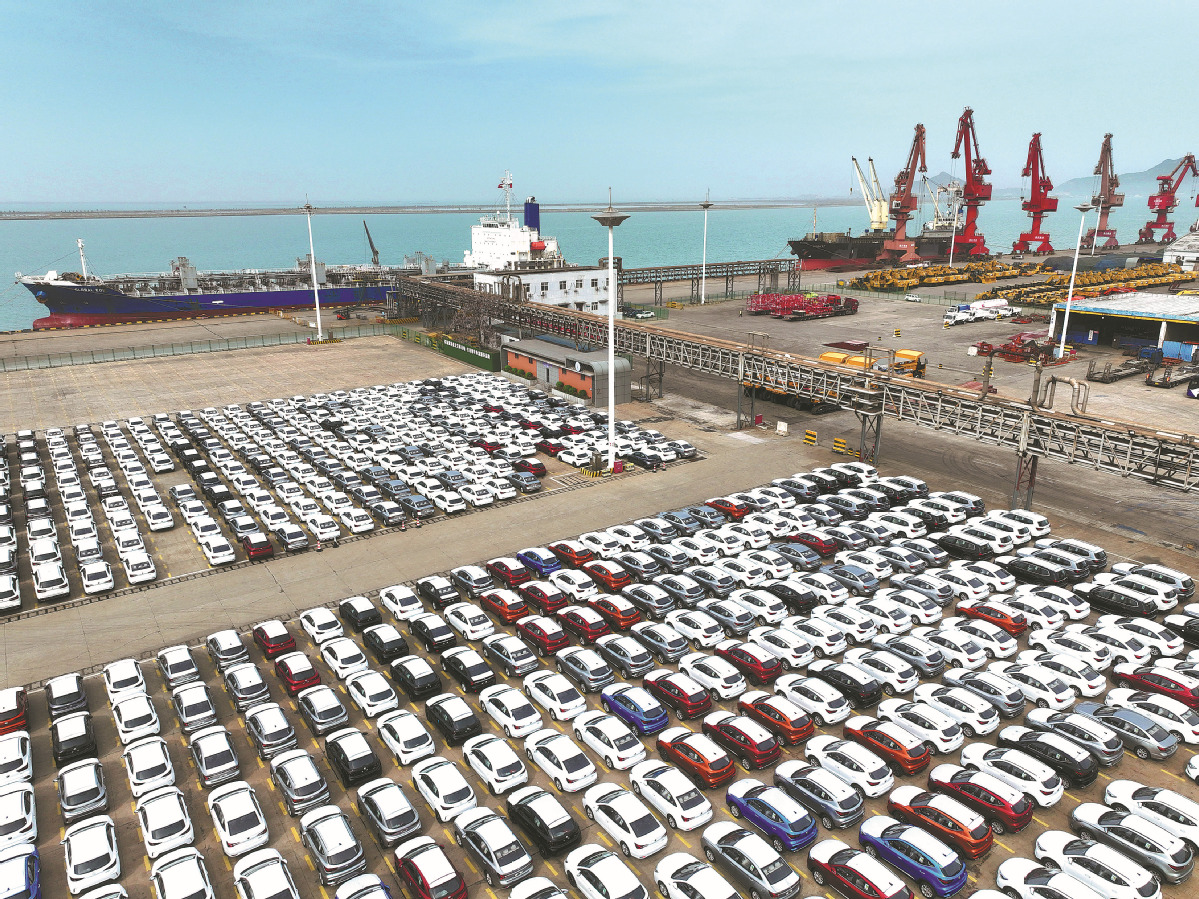Stabilizing economy augurs well for global growth
Rebound of trade, investment, manufacturing, and tourism boom key positives


China's economy is showing fresh signs of stabilization with a solid first-quarter performance this year, laying a strong foundation for achieving its preset growth target of around 5 percent for 2024, said economists and global executives.
Expressing confidence in China's economic trajectory, they said they foresee the nation maintaining its pivotal role as a primary contributor to global economic growth in 2024.
They, however, also cautioned the latest economic data showed a mixed picture of recovery, and advocated intensified endeavors to bolster domestic demand, address structural challenges and continuously deepen reforms and opening-up.
Liu Xueyan, director of the Macroeconomic Situation Research Office at the Chinese Academy of Macroeconomic Research, said China got off to a good start in 2024 with strong first-quarter GDP growth, steady growth in manufacturing and brightening social expectations.
"With a robust foundation laid in the first quarter, renewed market confidence and ample room for policy adjustment in the pipeline, China will be on track for steady recovery in the second quarter," she said.
Looking ahead, Liu said she believes China's 2024 annual growth target of around 5 percent is achievable. "With rapid growth in resident incomes, improving urban employment, coupled with policy support, optimism is brewing over China's consumption growth this year."
The five-day May Day holiday again proved to be a bumper time for tourism this year. It saw 295 million domestic trips, with a 7.6 percent year-on-year growth and an increase of 28.2 percent compared to that of 2019. Domestic tourism revenue reached 166.89 billion yuan ($23.16 billion), up 12.7 percent year-on-year and an increase of 13.5 percent over the same period in 2019, according to the Ministry of Culture and Tourism.
"In terms of investment, with the optimization and adjustment of real estate policies, the downward impact of real estate investment will weaken this year," Liu said. "Meanwhile, manufacturing and infrastructure investment will continue to rebound backed by forceful fiscal support, including the issuance of ultra-long-term special treasury bonds and local government special bonds."
On exports, Liu noted China's foreign trade with countries involved in the Belt and Road Initiative is expanding from traditional export markets to broader regions, and exports of the "new three" — passenger electric vehicles, lithium-ion batteries and solar cells — will continue to support the steady growth in foreign trade.
Latest data from the National Bureau of Statistics showed an official snapshot of the stabilizing economy, as China's manufacturing activity expanded for the second consecutive month in April.
China's official purchasing managers index for the manufacturing sector stood at 50.4 in April versus 50.8 in March, NBS data showed, above the 50-point mark that separates growth from contraction. The country's official composite PMI, which includes both manufacturing and nonmanufacturing activities, came in at 51.7 in April, down from 52.7 in March, the NBS said.
Meanwhile, the Caixin China General Services Purchasing Managers' Index, which focuses more on small and medium-sized enterprises and exporters, came in at 52.5 in April, down from 52.7 in March, media group Caixin said. Caixin's composite PMI, which includes both manufacturing and services activities, rose to 52.8 in April from 52.7 in the previous month, recording the highest level since May 2023.


















